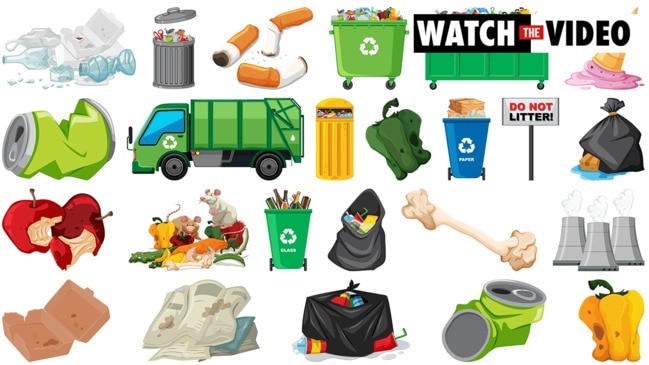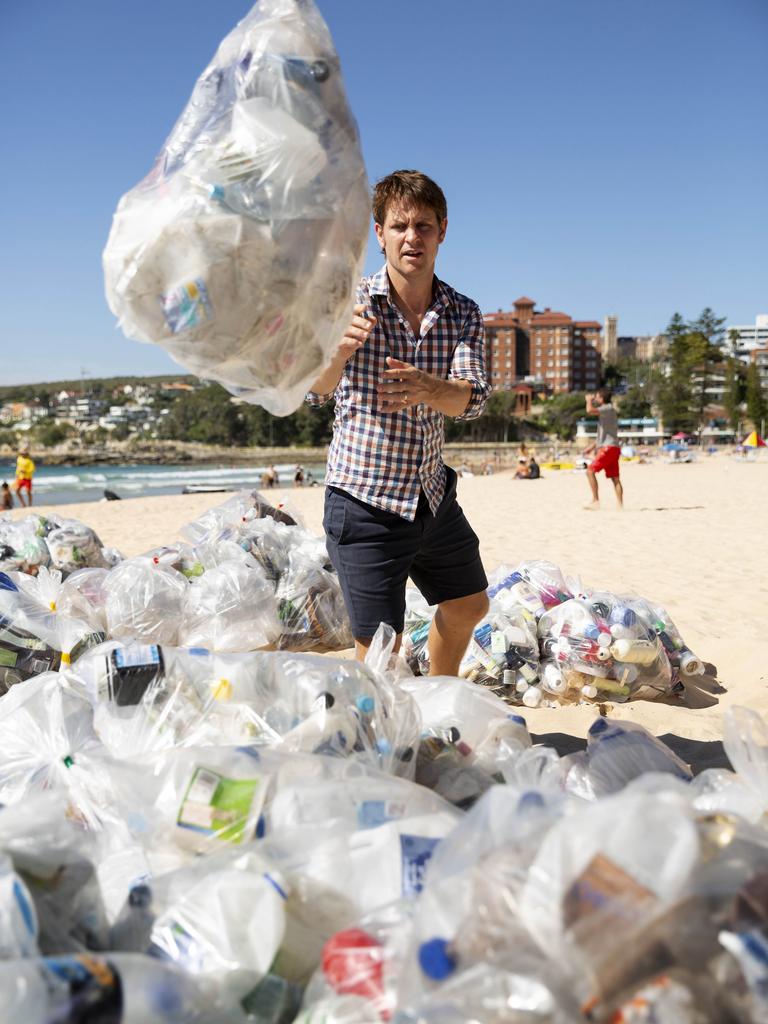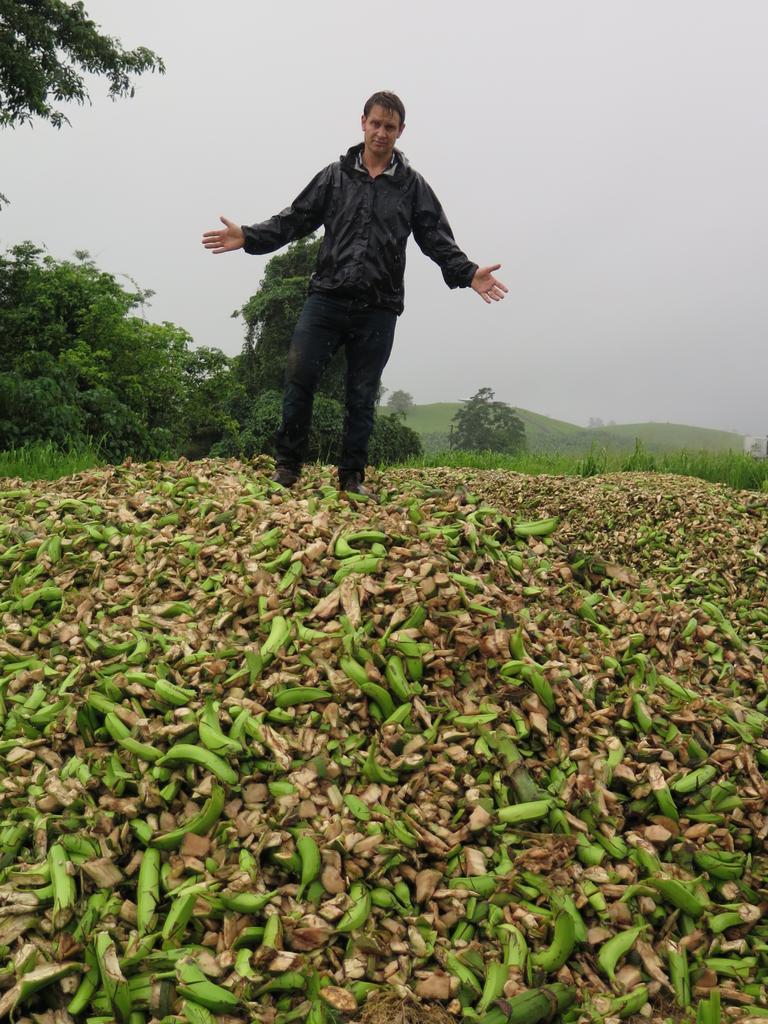The worst waste issue Australia can’t get right
There’s something we’re putting in our bins that shouldn’t really be there, and War on Waste’s Craig Reucassel wants us to stop doing it.

When Craig Reucassel highlighted the horrendous waste happening with bananas, it was the War on Waste segment which made the most impact.
But he also said it was the issue Australia had made the least progress on.
The ABC host said food waste was the problem we just can’t seem to get right.
Mr Reucassel said if you took food waste out of our rubbish bins, as well as any content that could recycled, there would not be much left.
But Melburnians were still up in arms when a move to change weekly rubbish collection to fortnightly was flagged.
Delivering the keynote speech at the Zero Waste conference this week, held by Macquarie University’s Centre for Corporate Sustainability and Environment Finance, Mr Reucassel said the problem was frustrating.
He highlighted figures from the report circling at the time of the rubbish collection proposal that revealed the majority of bin waste in Victoria was made up of food at 36 per cent.
The same report, Introducing a Kerbside Food and Garden Organics Collection Service, also showed how one local council’s community waste to landfill made up 79 per cent of greenhouse gas emissions.
RELATED: Our confronting food waste problem

“It’s a huge impact — over seven million tonnes of (food waste) in landfill — it’s a really backwards approach and something we need to change,” Mr Reucassel said.
“There’s a fear from a council perspective of changing what we’ve set up.”
Mr Reucassel said even systems in South Australia to address this had failed because people couldn’t fathom putting their food waste in the compostable green bins.
“In South Australia no one’s using it because it doesn’t work,” he said. “They’ve got this essentially non-working system there, it’s frustrating.
“You take out any food from your red bin, take out the plastics that can be recycled and it’s actually got bugger all in it.”
Food waste costs the economy about $20 billion — and New South Wales households are one of the biggest contributors.
They are throwing away $73 per week or $3805 worth of food each year.
Mr Reucassel also highlighted the impacts of China’s decision to stop receiving our waste recyclables.
He said in six months 34,000 tonnes had now gone to Malaysia, almost more than half what we were sending to China anyway.
“It surprises me because I feel like we’ve known about this for quite a long time,” Mr Reucassel said. “I’m amazed how little we’re doing about it.”
He said moves to make more product packaging completely recyclable were great, but only if the consumer followed through.
“It’s not about whether it’s recyclable, it’s about whether we actually recycle it,” he said.
“It needs to change. Even after doing War on Waste for years I stand at my recycling bin mystified.”


The Target Zero: Zero Carbon, Zero Pollution, Zero Waste conference has brought together experts in sustainability to address how we can we eliminate carbon emissions, pollution, and waste.
Macquarie’s Professor Martina Linnenluecke said with global temperatures rising beyond 1.5 degrees the situation is dire and meant we needed to act urgently on limiting carbon emissions.
“Countries need to cut their emissions 45 per cent from 2010 levels, by 2030, and aim for net zero emissions by 205,” she said.
“This can only be done if corporations, industries and households reduce their major emissions from energy use, travel and other wasteful practices.
“The move to clean technology is not going to be fast enough to stay within the 2C warming scenario.
“It’s a problem for future generations who will face more droughts, heatwaves and a degraded environment because of climate change.”



